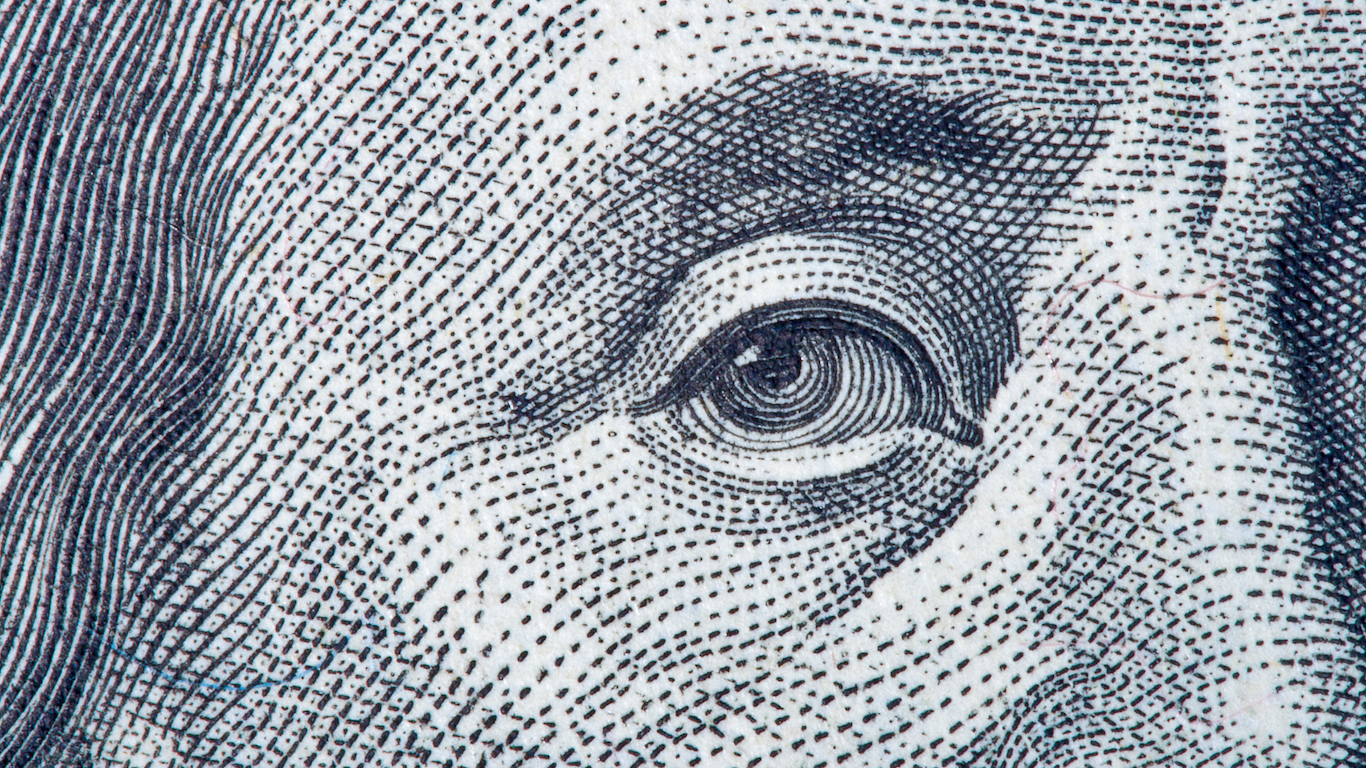
As the U.S. economy continues to expand in the wake of the Great Recession, many companies are taking advantage of low interest rates and cheap credit and are increasing their borrowing levels. Corporate debt levels for non-financial U.S. companies reached, according to S&P Global, $7.1 trillion in 2019 — more than a third of GDP — the largest corporate debt load in history.
Much of the corporate debt is concentrated in just a few large companies. The top 10 non-financial U.S. companies with the greatest debt loads account for 13% of the national corporate debt, and the top 40 companies account for 26% of all long-term corporate debt in the country.
To determine the companies with the biggest corporate debt, 24/7 Wall St. analyzed the long-term debt of non-financial companies in the Fortune 500 with data from SEC filings for the latest fiscal year. Long-term debt refers to outstanding debt a company holds that is due in a period of 12 months or longer and includes obligations such as bonds and individual notes payable.
Of the 40 companies with the biggest corporate debt loads, seven are in the technology sector, four in utilities, four in energy, and four in telecommunications. Many of the tech companies on this list are also among the world’s 50 most innovative companies, and many of the industries represented by the most debt-laden companies also operate within America’s 25 thriving industries.
Click here to see the companies with the biggest corporate debts
Click here to read our detailed findings and methodology

40. FirstEnergy (NYSE: FE)
> Long-term debt: $17.8 billion
> Debt-to-equity ratio: 2.61
> Annual revenue: $11.3 billion
> Industry: Utilities
[in-text-ad]
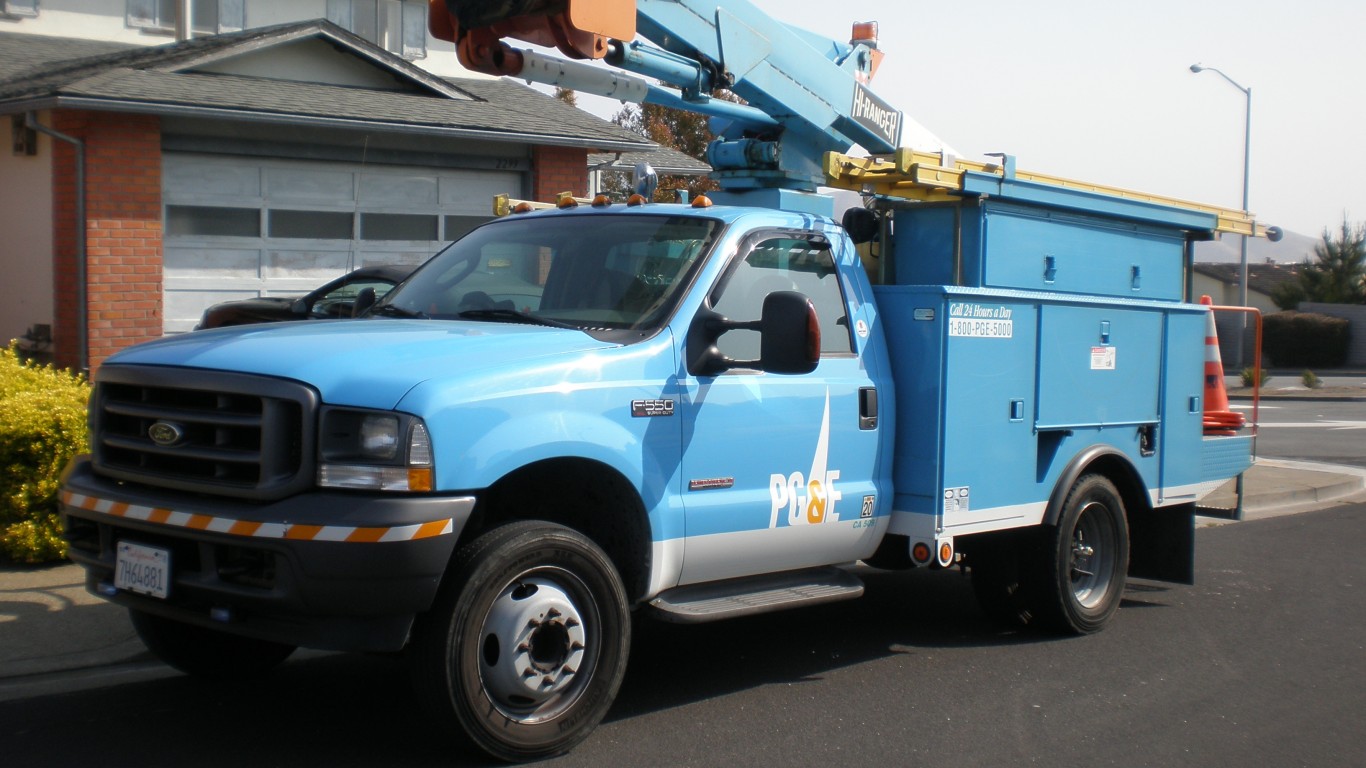
39. PG&E Corp. (NYSE: PCG)
> Long-term debt: $18.6 billion
> Debt-to-equity ratio: 1.44
> Annual revenue: $16.8 billion
> Industry: Utilities
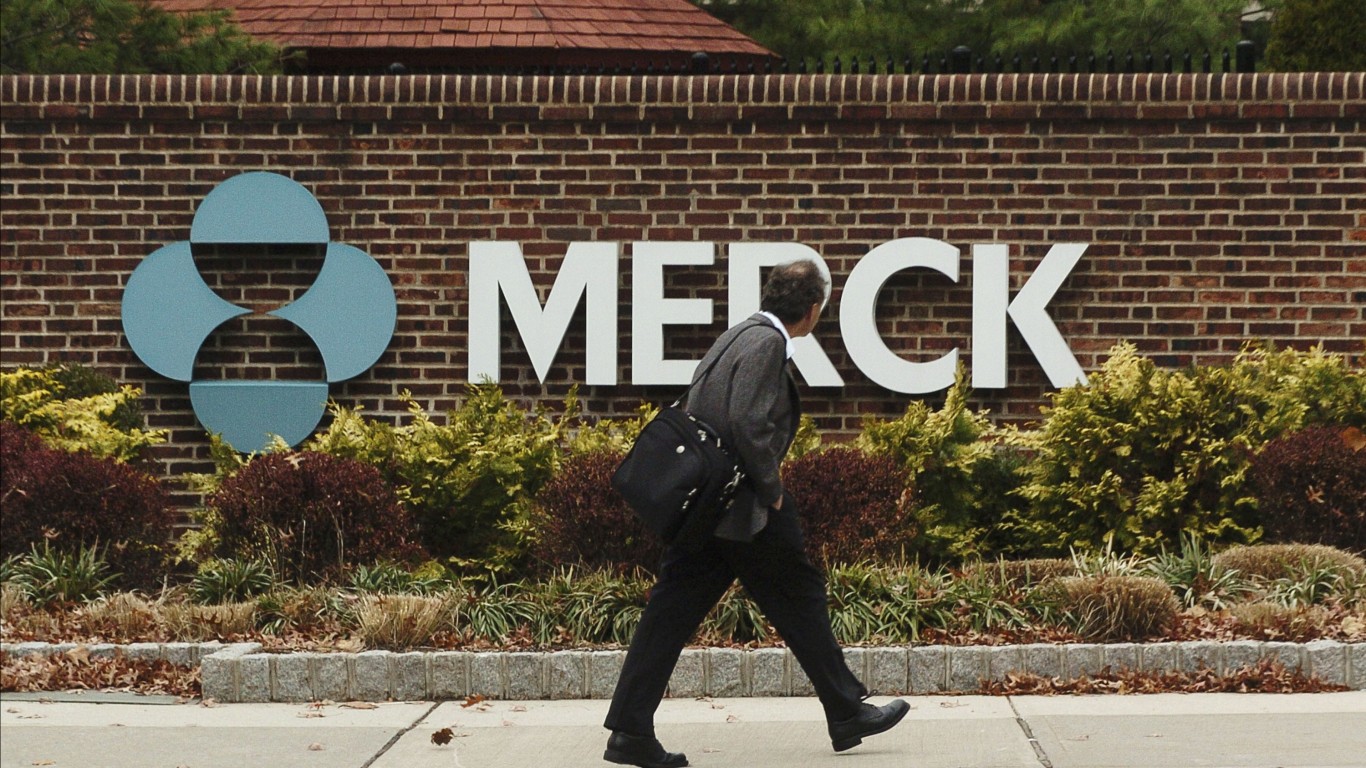
38. Merck (NYSE: MRK)
> Long-term debt: $19.8 billion
> Debt-to-equity ratio: 0.74
> Annual revenue: $42.3 billion
> Industry: Pharmaceuticals

37. UPS (NYSE: UPS)
> Long-term debt: $19.9 billion
> Debt-to-equity ratio: 6.56
> Annual revenue: $71.9 billion
> Industry: Mail, package, and freight delivery
[in-text-ad-2]
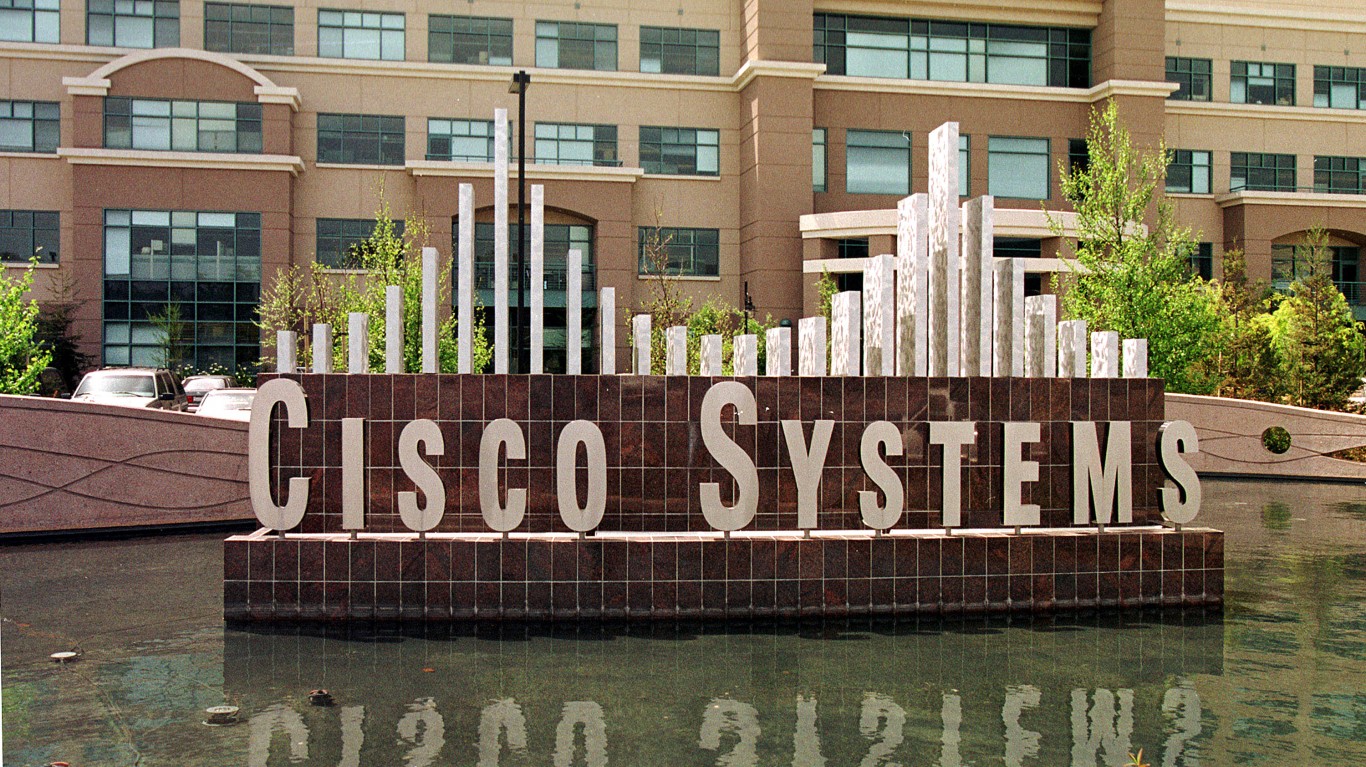
36. Cisco Systems (NASDAQ: CSCO)
> Long-term debt: $20.3 billion
> Debt-to-equity ratio: 0.47
> Annual revenue: $49.3 billion
> Industry: Technology
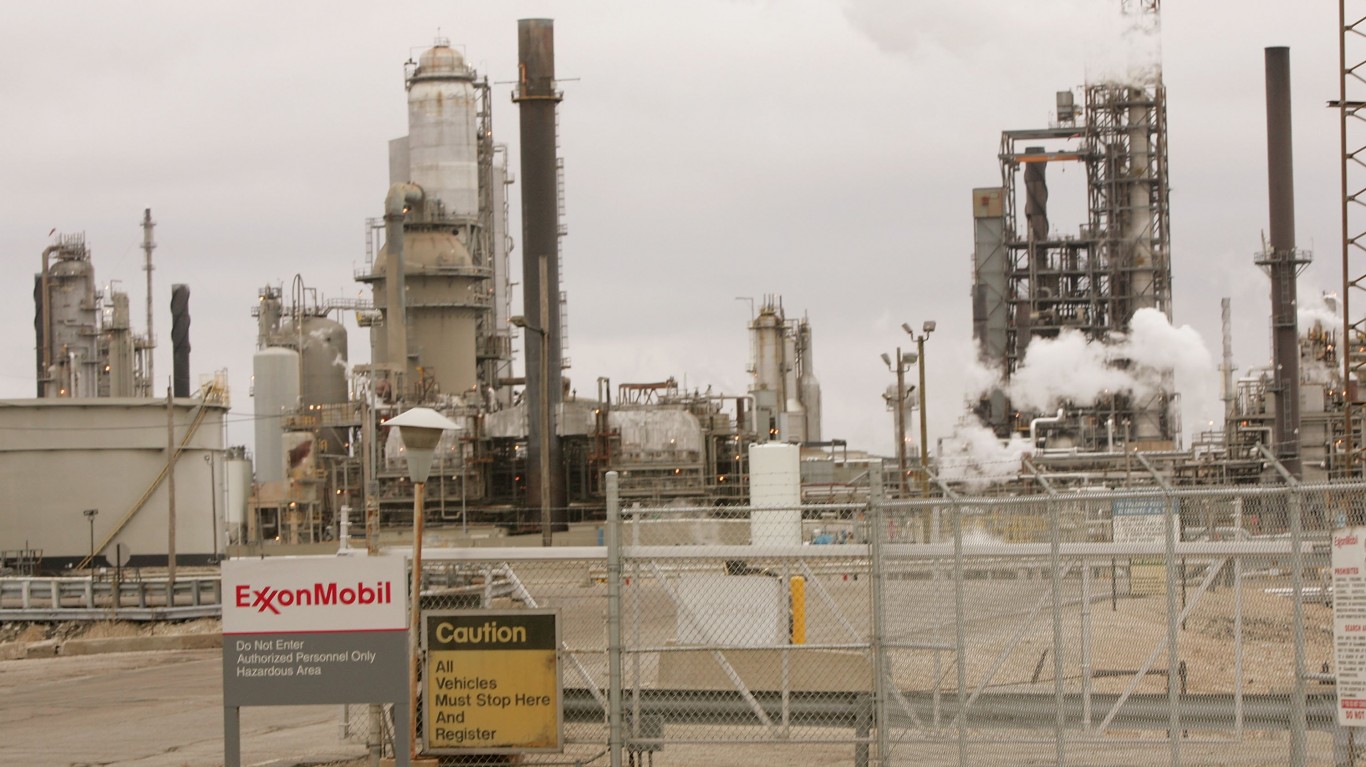
35. Exxon Mobil (NYSE: XOM)
> Long-term debt: $20.5 billion
> Debt-to-equity ratio: 0.10
> Annual revenue: $290.2 billion
> Industry: Energy
[in-text-ad]
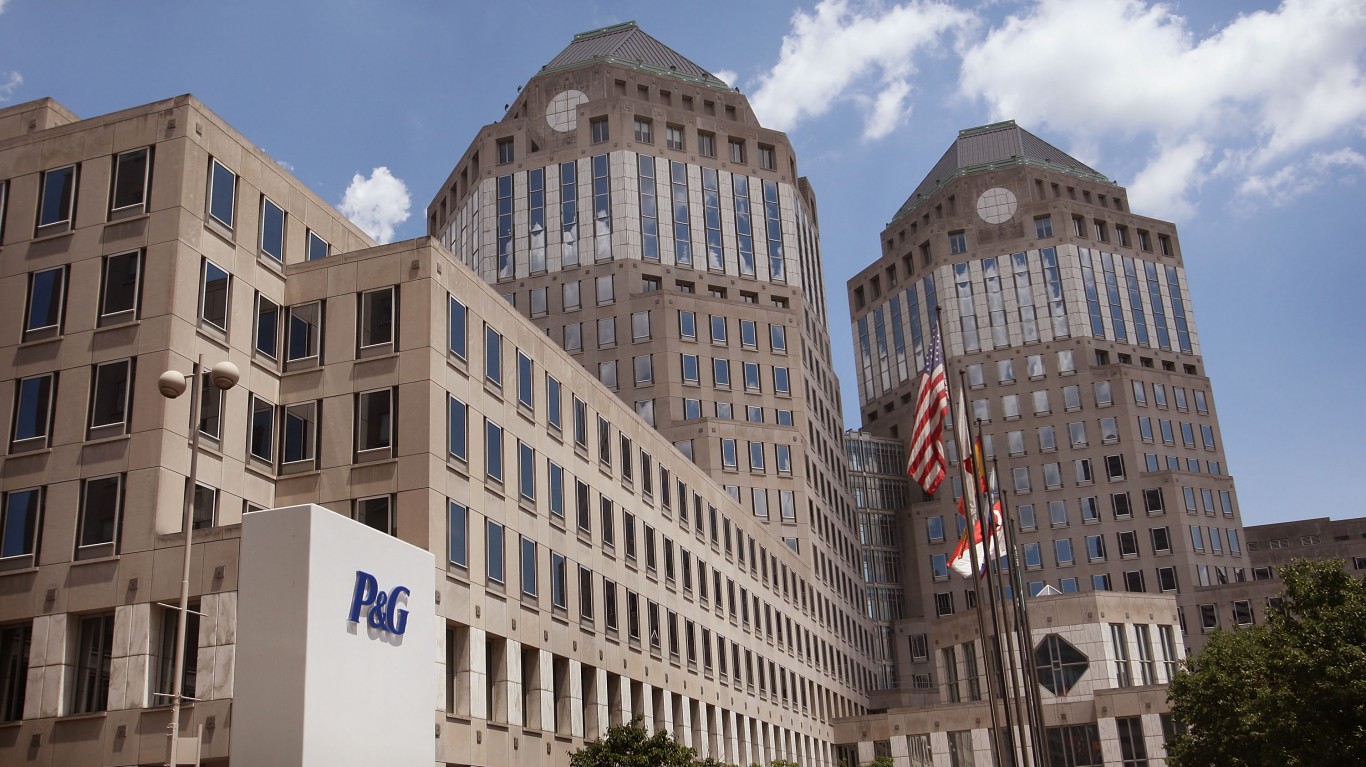
34. Procter & Gamble (NYSE: PG)
> Long-term debt: $20.9 billion
> Debt-to-equity ratio: 0.39
> Annual revenue: $66.8 billion
> Industry: Household products

33. American Airlines Group (NASDAQ: AAL)
> Long-term debt: $21.2 billion
> Debt-to-equity ratio: -125.32
> Annual revenue: $44.5 billion
> Industry: Airlines

32. Amazon.com (NASDAQ: AMZN)
> Long-term debt: $23.5 billion
> Debt-to-equity ratio: 0.54
> Annual revenue: $232.9 billion
> Industry: Online retail
[in-text-ad-2]
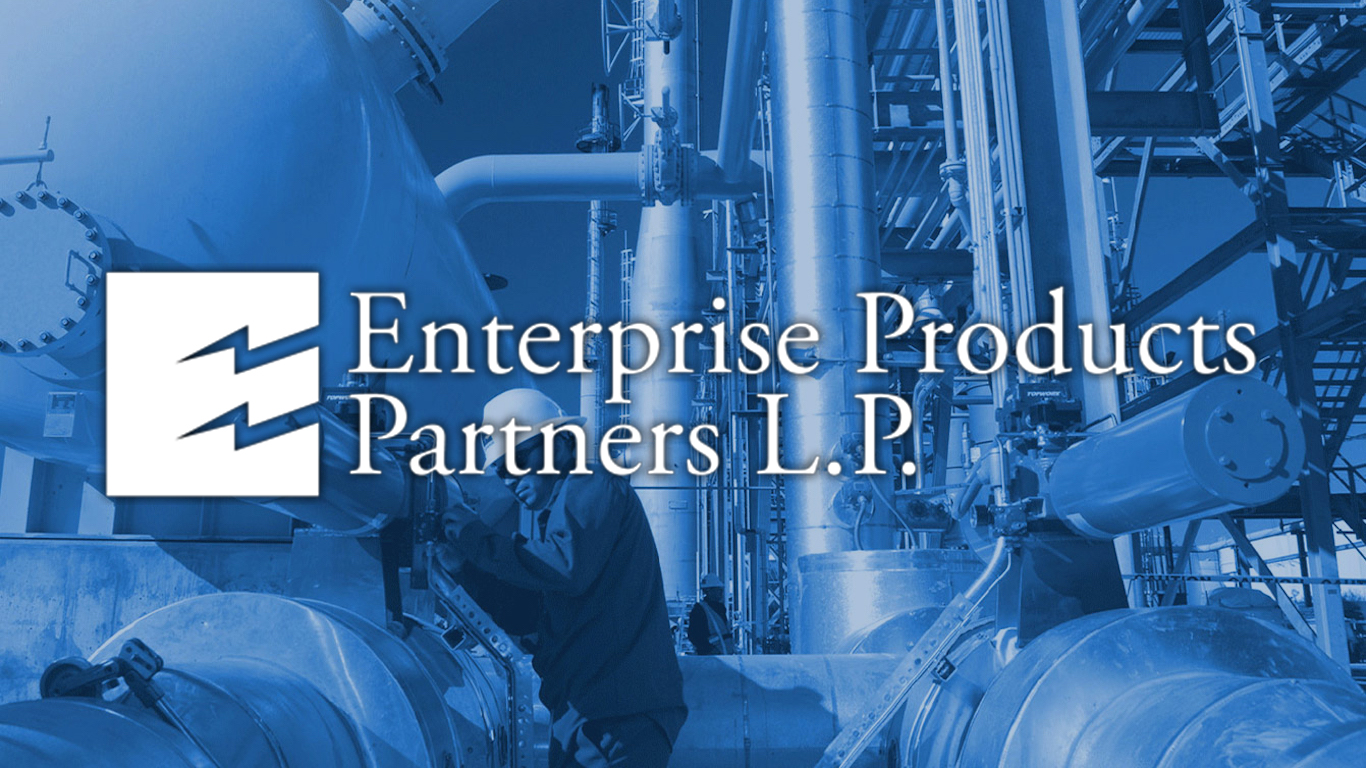
31. Enterprise Products Partners (NYSE: EPD)
> Long-term debt: $24.7 billion
> Debt-to-equity ratio: 1.02
> Annual revenue: $36.5 billion
> Industry: Energy
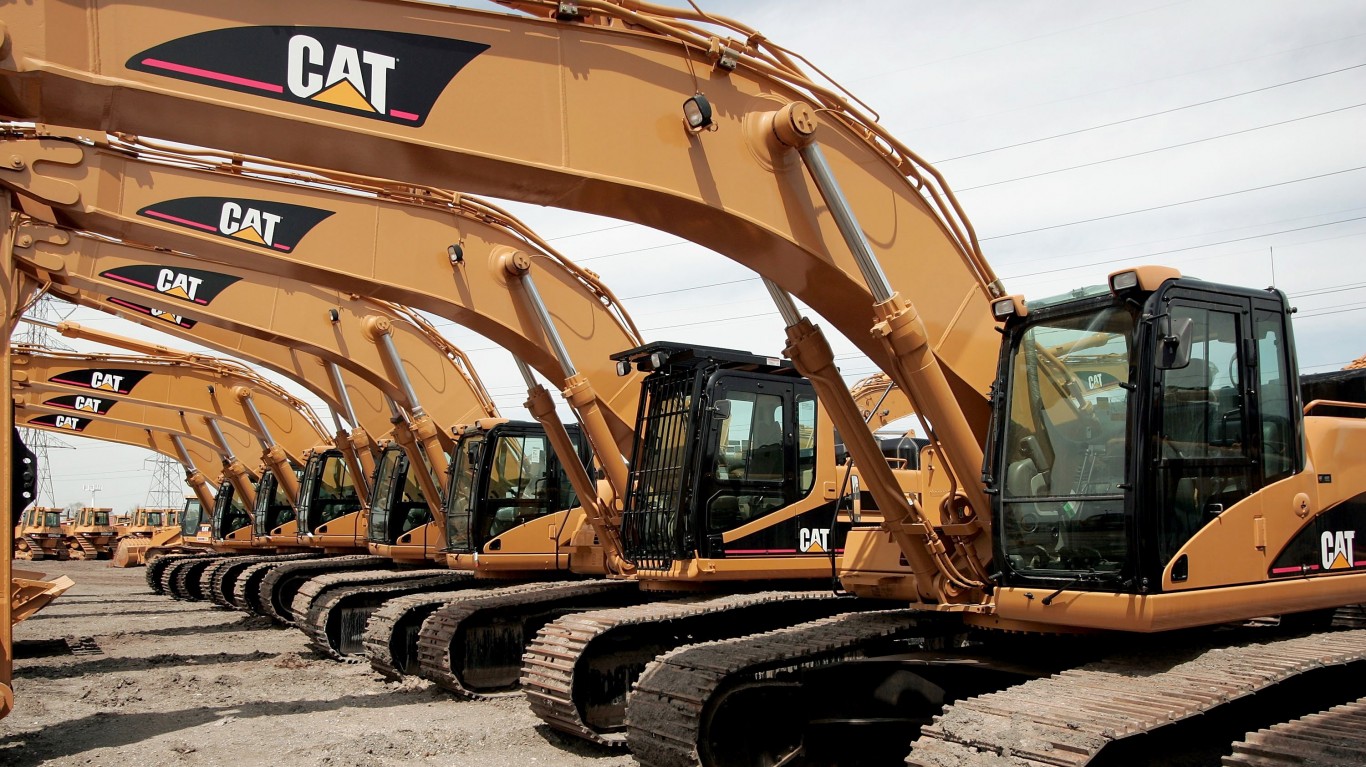
30. Caterpillar (NYSE: CAT)
> Long-term debt: $25.0 billion
> Debt-to-equity ratio: 1.78
> Annual revenue: $54.7 billion
> Industry: Construction
[in-text-ad]
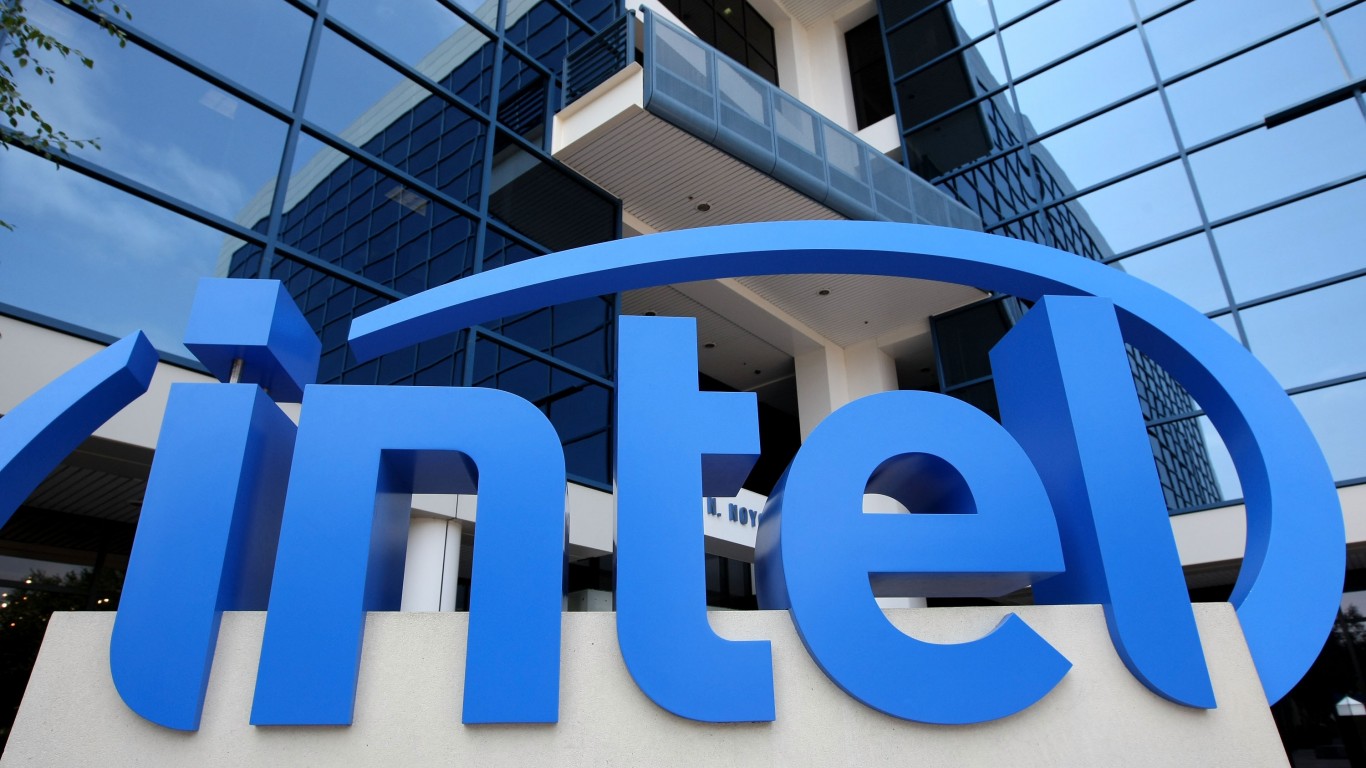
29. Intel (NASDAQ: INTC)
> Long-term debt: $25.1 billion
> Debt-to-equity ratio: 0.34
> Annual revenue: $70.8 billion
> Industry: Technology
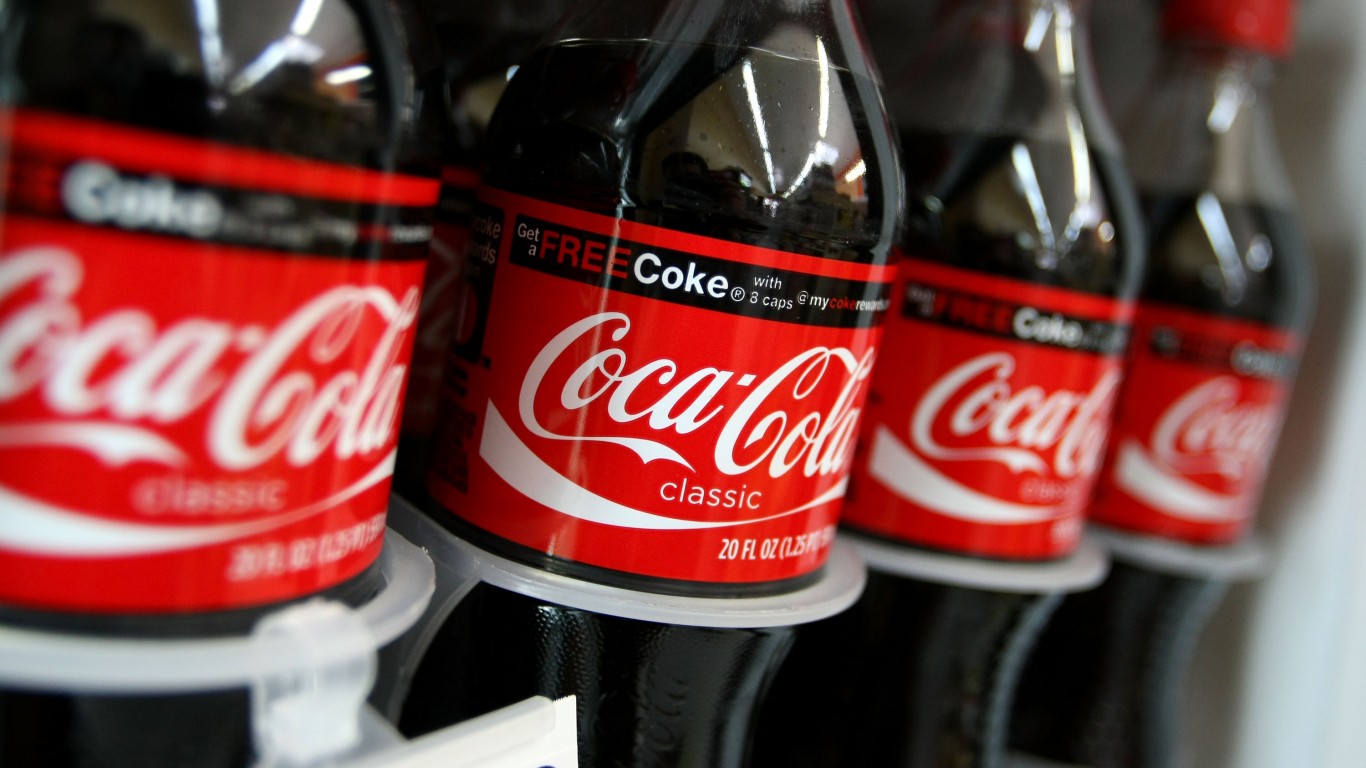
28. Coca-Cola (NYSE: KO)
> Long-term debt: $25.4 billion
> Debt-to-equity ratio: 1.33
> Annual revenue: $31.9 billion
> Industry: Beverages
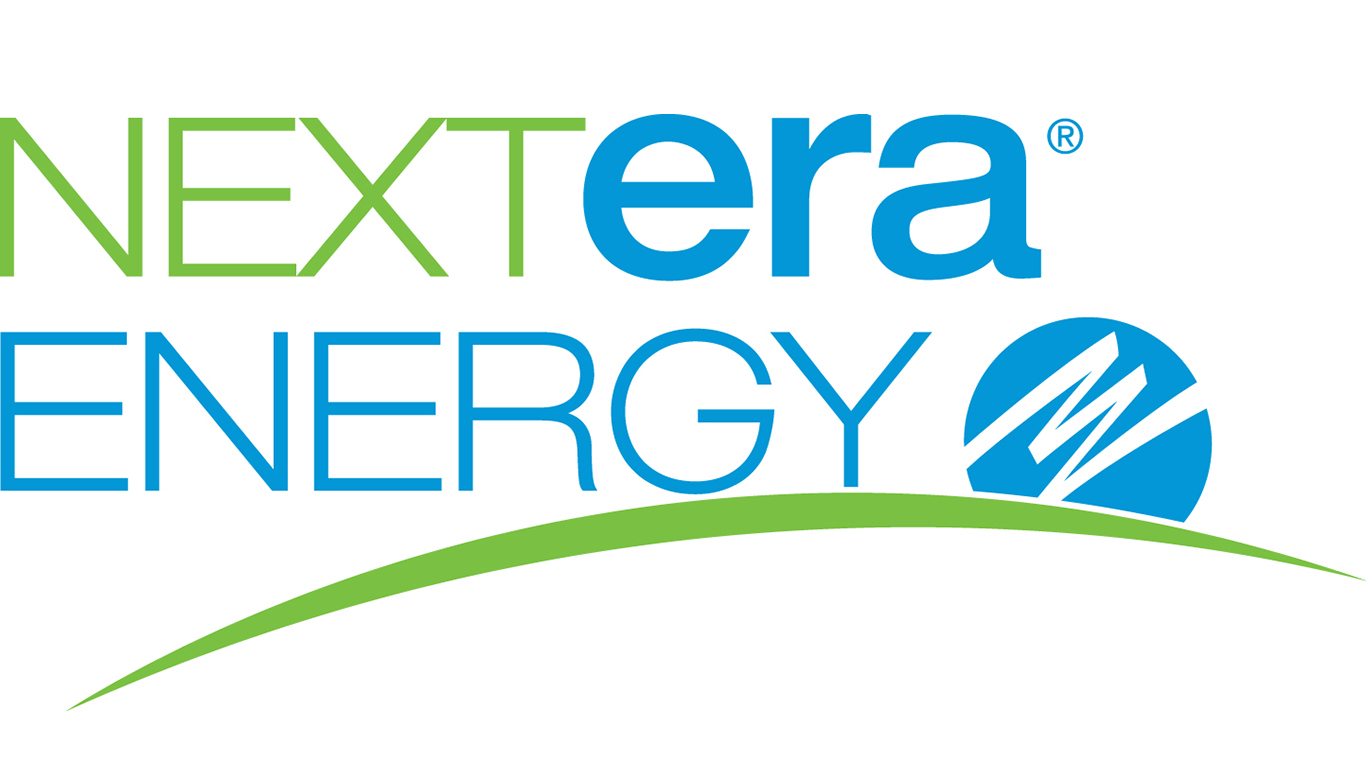
27. NextEra Energy (NYSE: NEE)
> Long-term debt: $26.8 billion
> Debt-to-equity ratio: 0.72
> Annual revenue: $16.7 billion
> Industry: Utilities
[in-text-ad-2]

26. Home Depot (NYSE: HD)
> Long-term debt: $26.8 billion
> Debt-to-equity ratio: -14.27
> Annual revenue: $108.2 billion
> Industry: Specialty retail
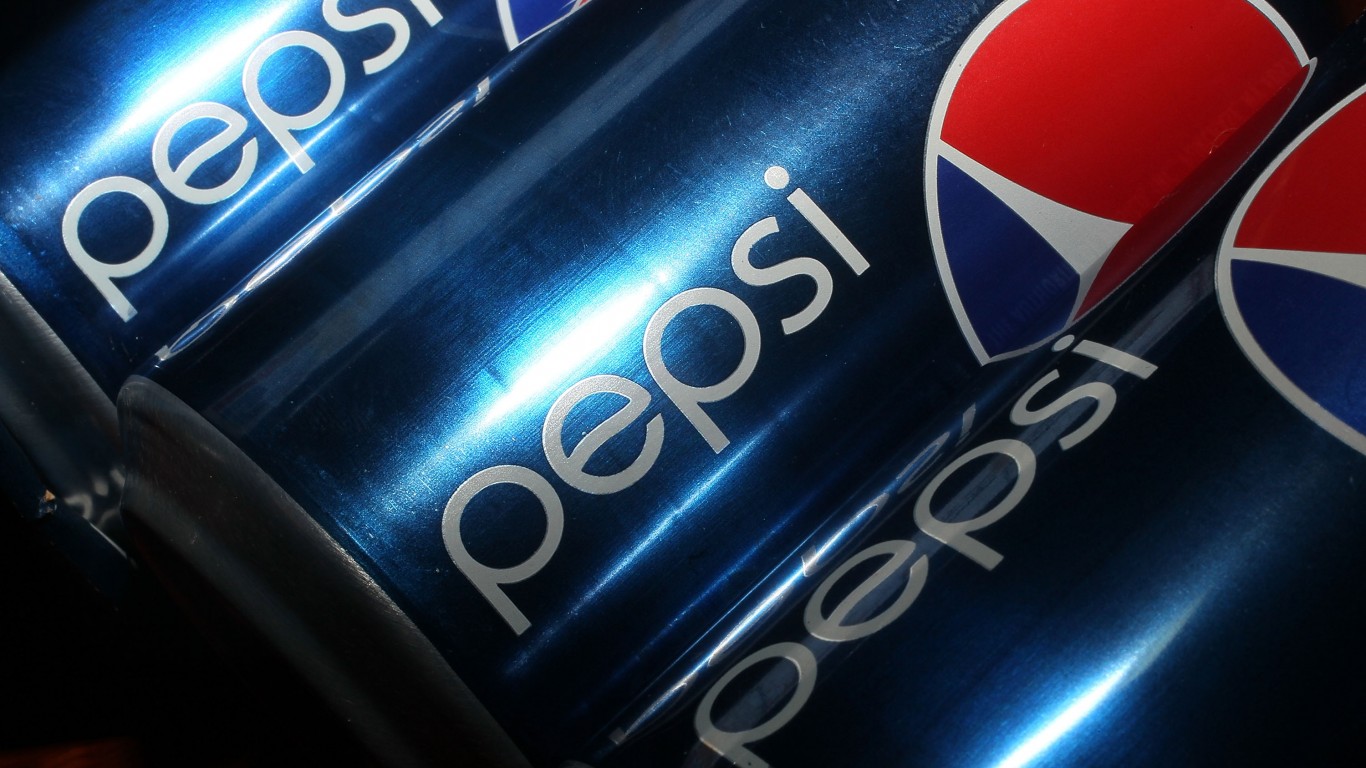
25. PepsiCo (NASDAQ: PEP)
> Long-term debt: $28.3 billion
> Debt-to-equity ratio: 1.94
> Annual revenue: $64.7 billion
> Industry: Beverages
[in-text-ad]
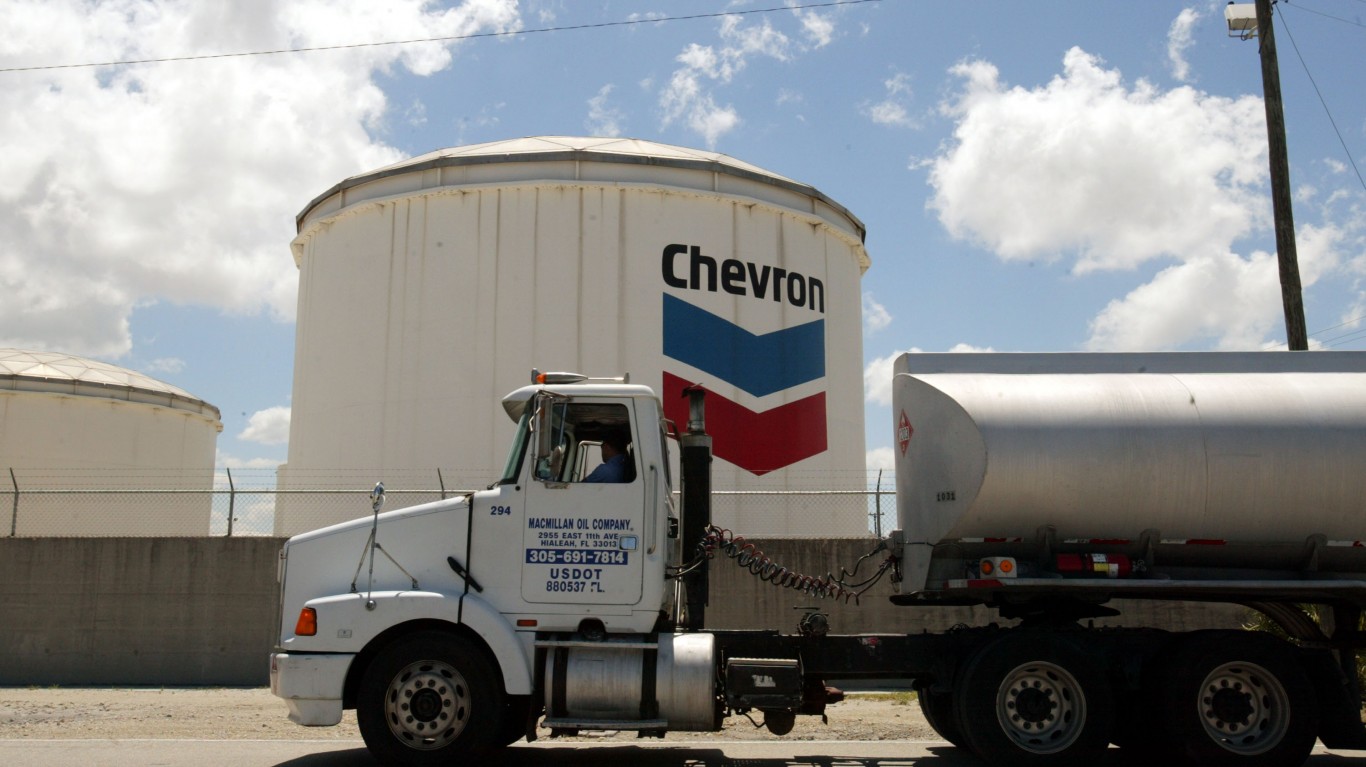
24. Chevron (NYSE: CVX)
> Long-term debt: $28.7 billion
> Debt-to-equity ratio: 0.18
> Annual revenue: $166.3 billion
> Industry: Energy

23. Amgen (NASDAQ: AMGN)
> Long-term debt: $29.5 billion
> Debt-to-equity ratio: 2.36
> Annual revenue: $23.7 billion
> Industry: Pharmaceuticals
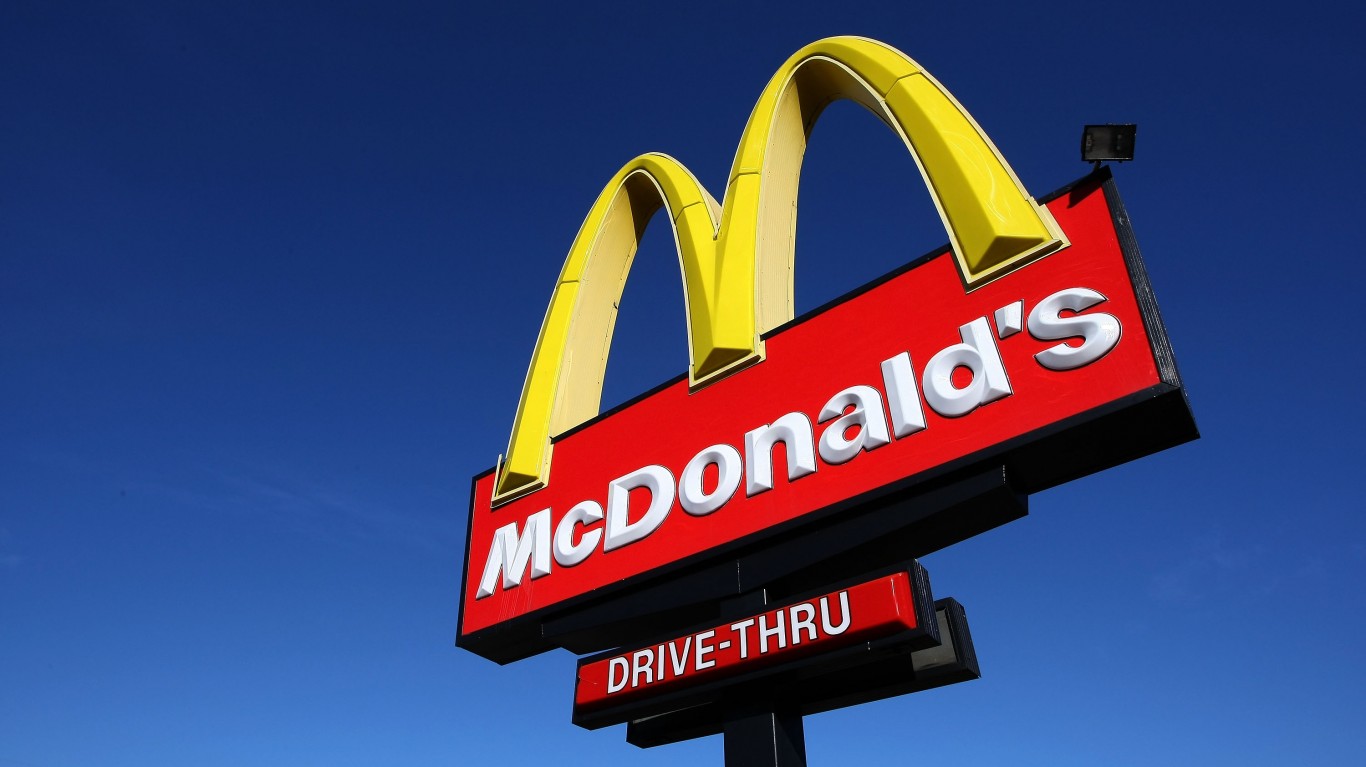
22. McDonald’s (NYSE: MCD)
> Long-term debt: $31.1 billion
> Debt-to-equity ratio: -4.97
> Annual revenue: $21.0 billion
> Industry: Food services
[in-text-ad-2]

21. HCA Healthcare (NYSE: HCA)
> Long-term debt: $32.0 billion
> Debt-to-equity ratio: -10.98
> Annual revenue: $46.7 billion
> Industry: Health care

20. Pfizer (NYSE: PFE)
> Long-term debt: $32.9 billion
> Debt-to-equity ratio: 0.52
> Annual revenue: $53.6 billion
> Industry: Pharmaceuticals
[in-text-ad]
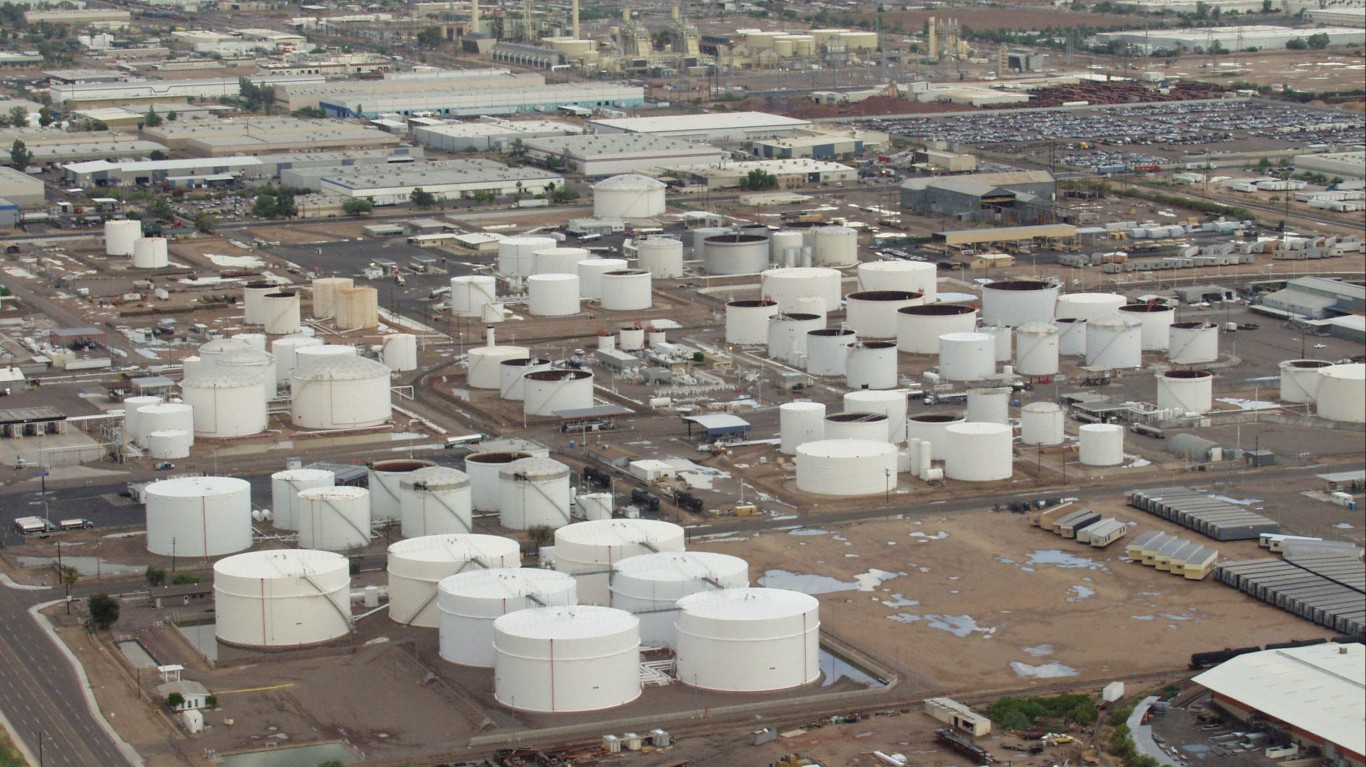
19. Kinder Morgan (NYSE: KMI)
> Long-term debt: $33.9 billion
> Debt-to-equity ratio: 0.98
> Annual revenue: $14.1 billion
> Industry: Energy
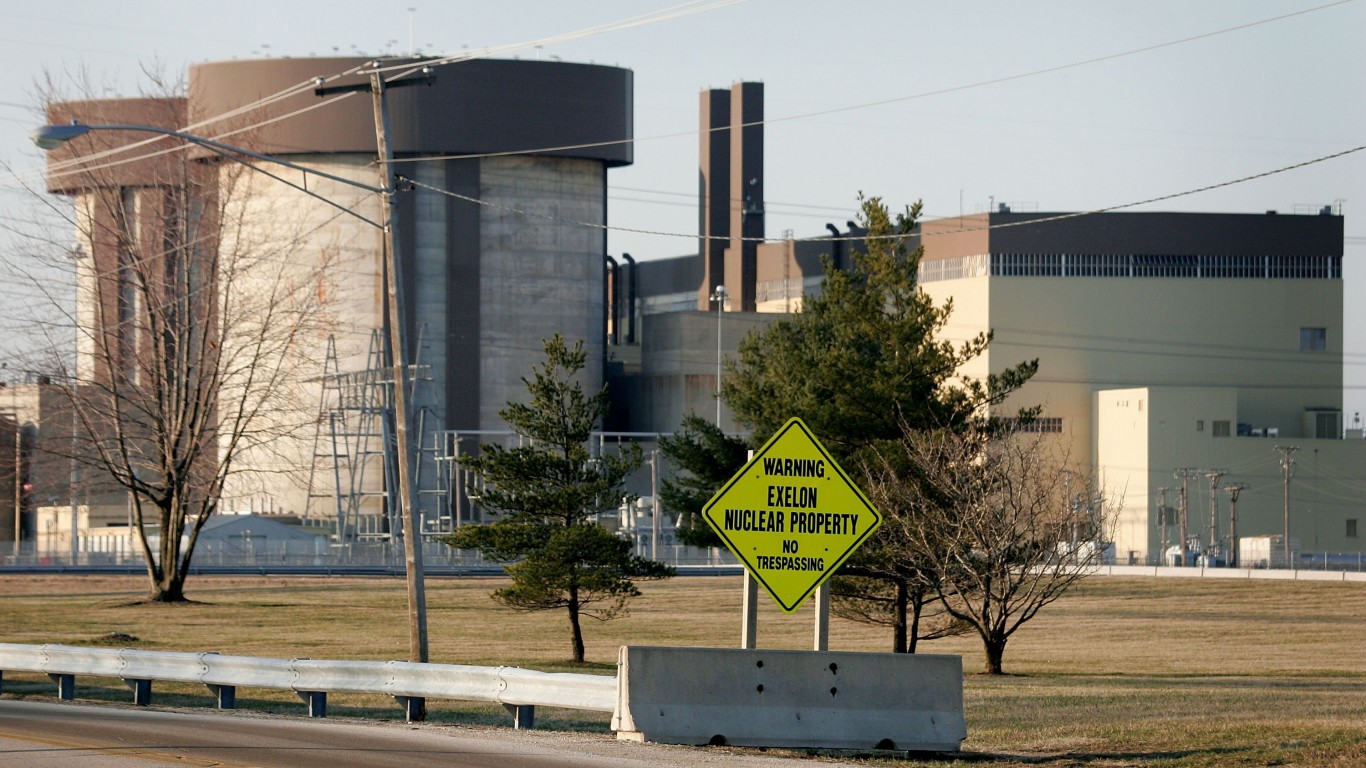
18. Exelon (NYSE: EXC)
> Long-term debt: $34.1 billion
> Debt-to-equity ratio: 1.11
> Annual revenue: $36.0 billion
> Industry: Utilities

17. UnitedHealth Group (NYSE: UNH)
> Long-term debt: $34.6 billion
> Debt-to-equity ratio: 0.64
> Annual revenue: $226.2 billion
> Industry: Health care
[in-text-ad-2]
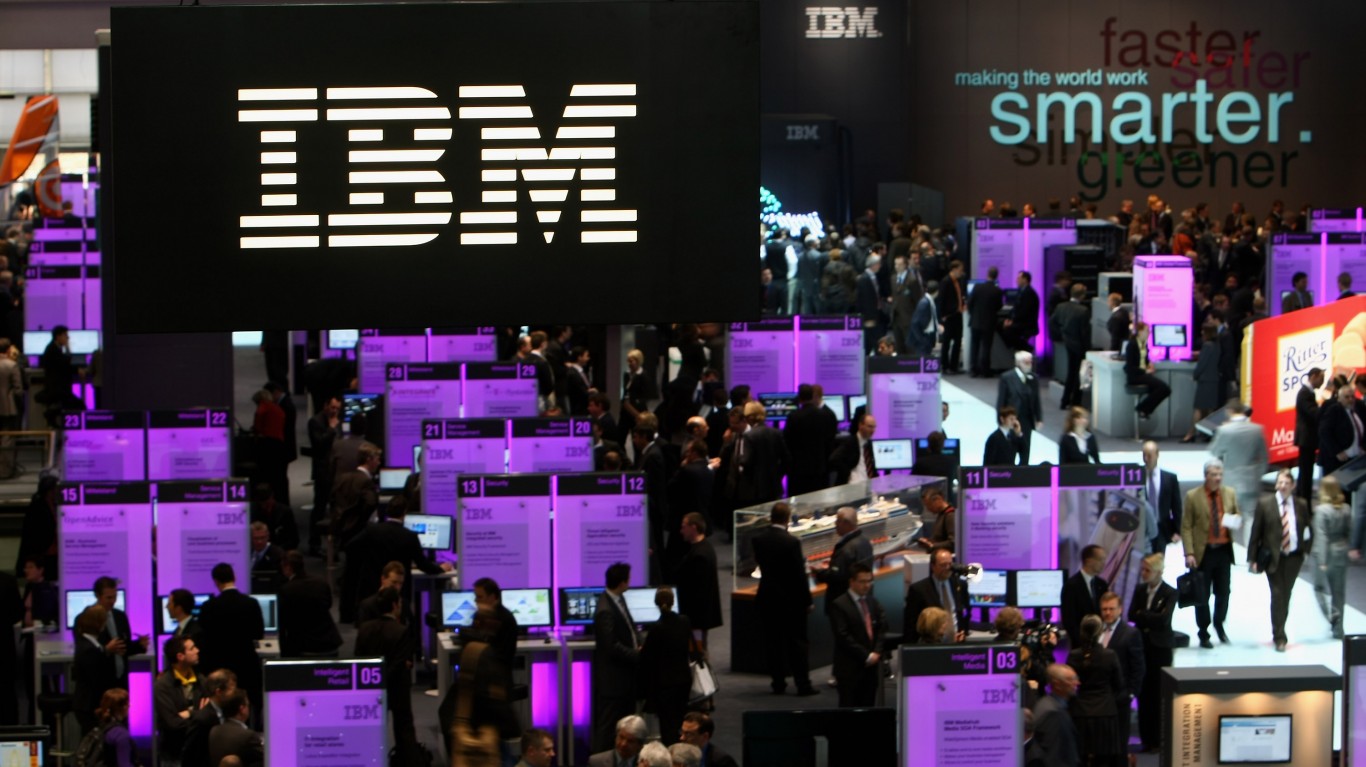
16. IBM (NYSE: IBM)
> Long-term debt: $35.6 billion
> Debt-to-equity ratio: 2.10
> Annual revenue: $79.6 billion
> Industry: Technology
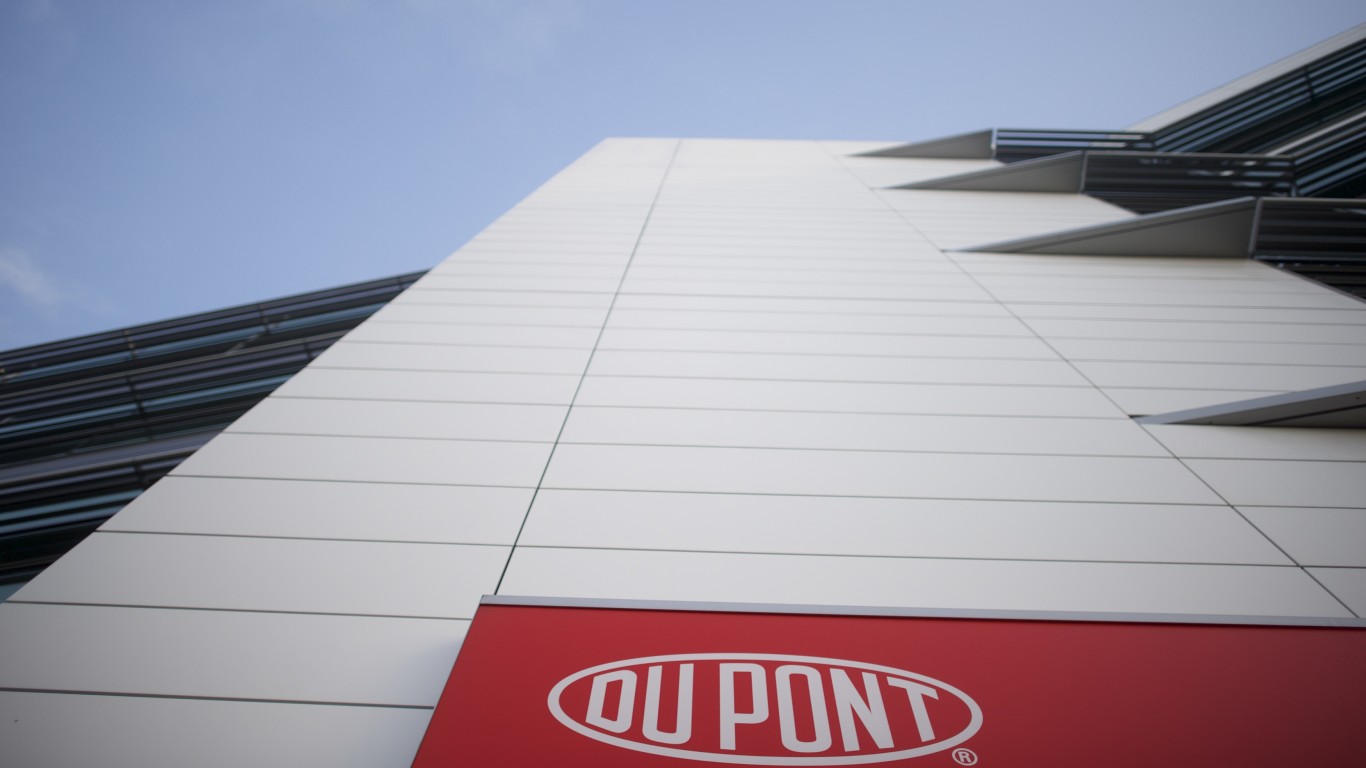
15. DowDuPont (NYSE: DD)
> Long-term debt: $37.7 billion
> Debt-to-equity ratio: 0.39
> Annual revenue: $86.0 billion
> Industry: Chemicals
[in-text-ad]

14. United Technologies (NYSE: UTX)
> Long-term debt: $41.2 billion
> Debt-to-equity ratio: 1.01
> Annual revenue: $66.5 billion
> Industry: Aerospace & defense
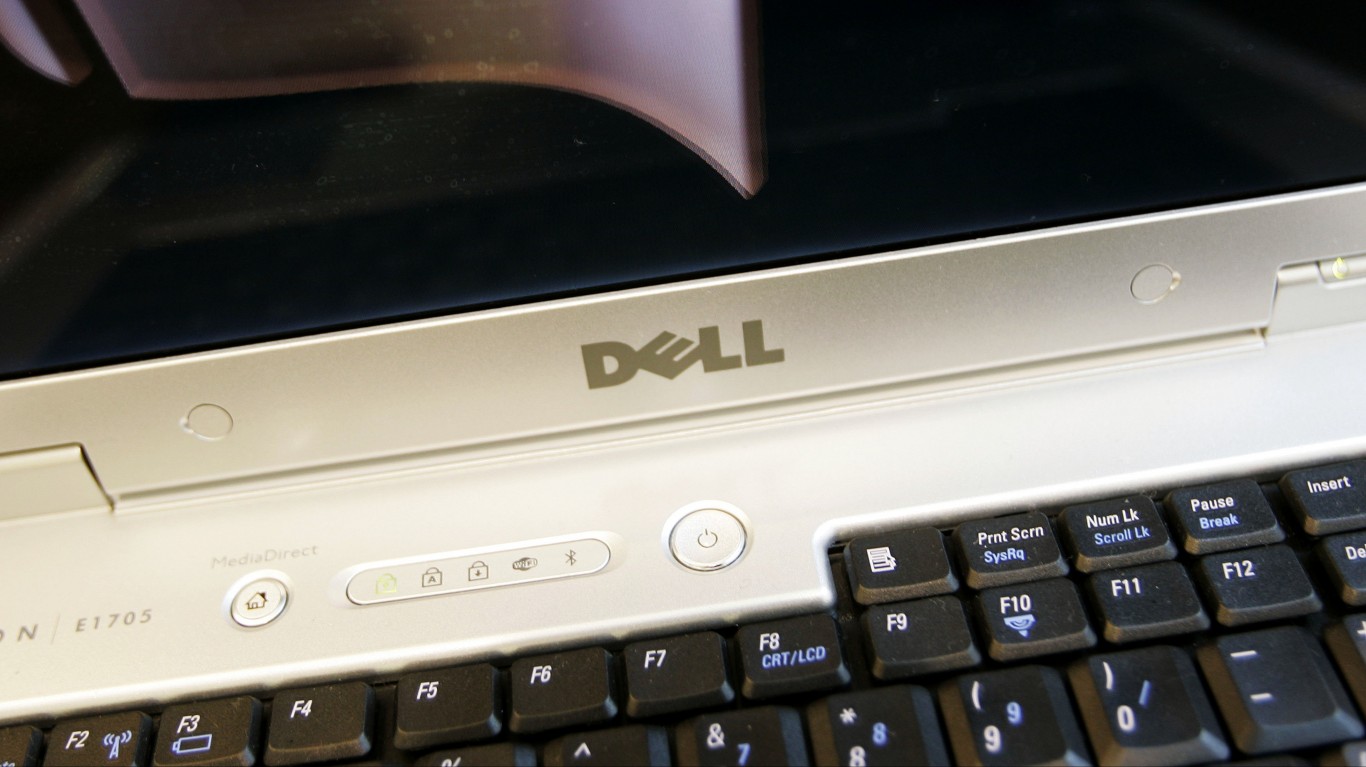
13. Dell Technologies (NYSE: DELL)
> Long-term debt: $49.2 billion
> Debt-to-equity ratio: -52.23
> Annual revenue: $90.6 billion
> Industry: Technology
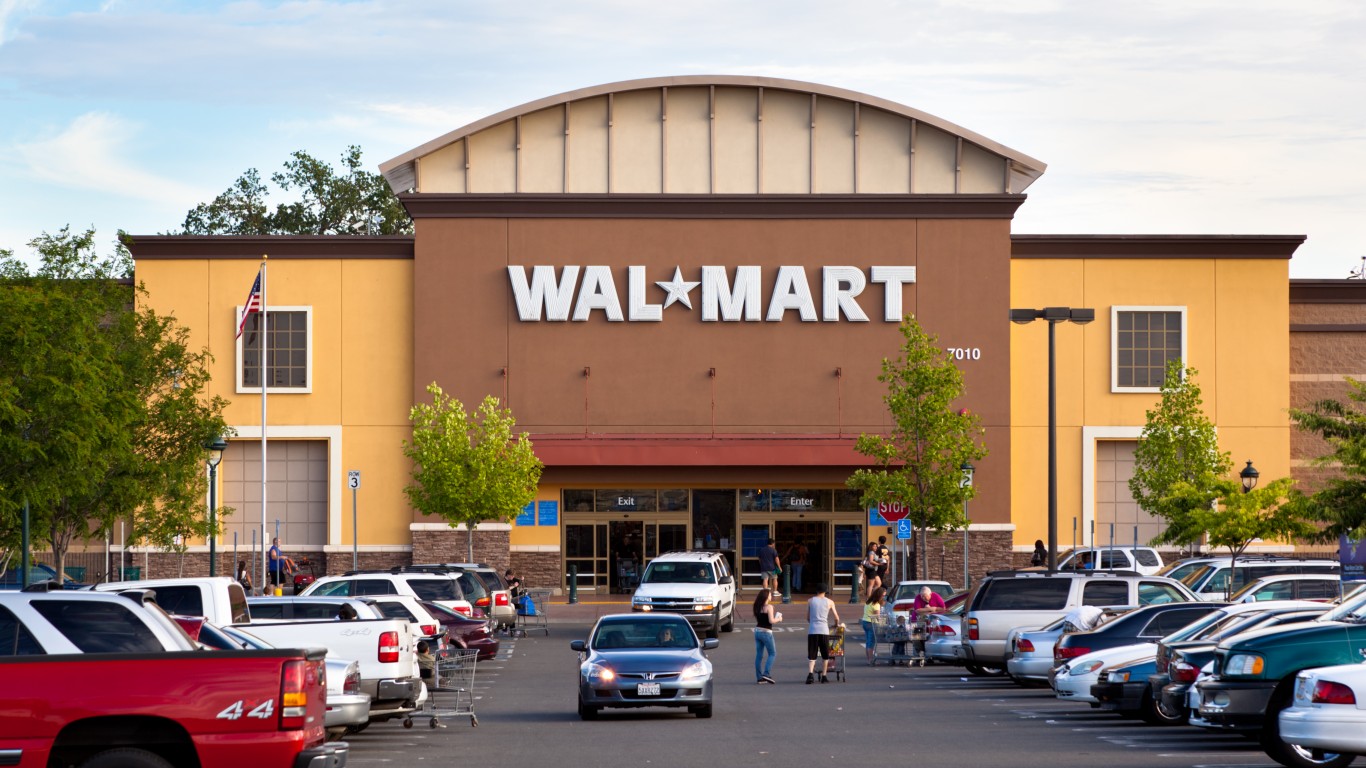
12. Walmart (NYSE: WMT)
> Long-term debt: $50.2 billion
> Debt-to-equity ratio: 0.63
> Annual revenue: $514.4 billion
> Industry: Retail
[in-text-ad-2]

11. Oracle (NYSE: ORCL)
> Long-term debt: $51.7 billion
> Debt-to-equity ratio: 2.31
> Annual revenue: $39.5 billion
> Industry: Technology

10. Charter Communications (NASDAQ: CHTR)
> Long-term debt: $69.5 billion
> Debt-to-equity ratio: 1.57
> Annual revenue: $43.6 billion
> Industry: Telecommunications
[in-text-ad]
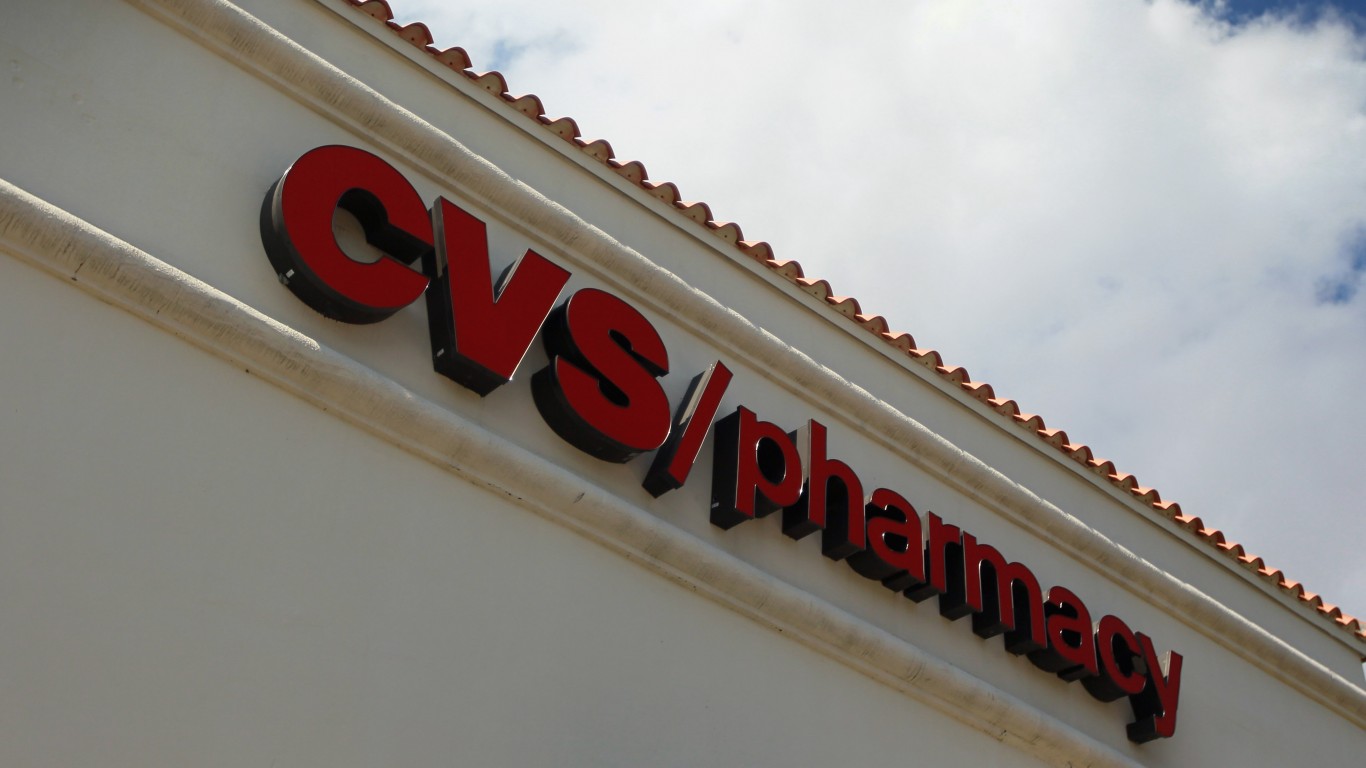
9. CVS Health (NYSE: CVS)
> Long-term debt: $71.4 billion
> Debt-to-equity ratio: 1.22
> Annual revenue: $194.6 billion
> Industry: Health care

8. Microsoft (NASDAQ: MSFT)
> Long-term debt: $72.2 billion
> Debt-to-equity ratio: 0.87
> Annual revenue: $110.4 billion
> Industry: Technology
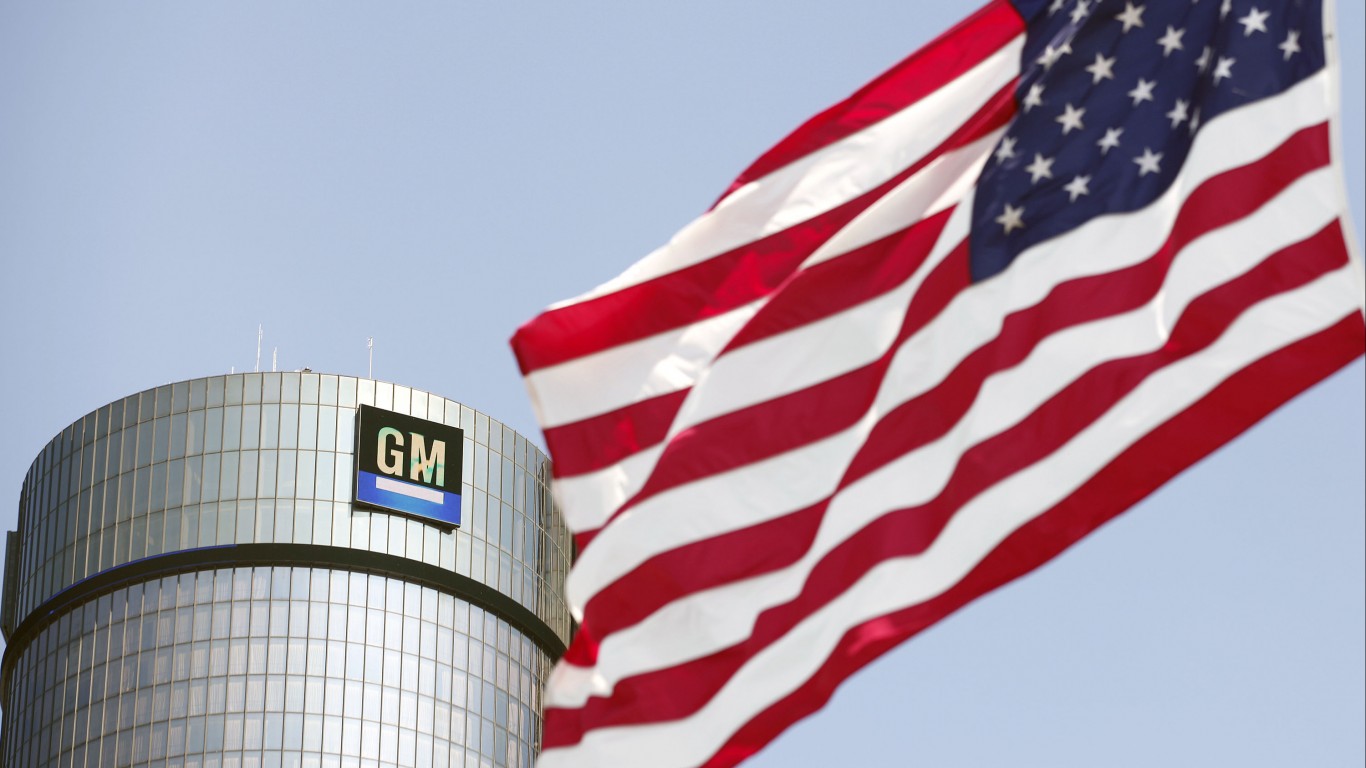
7. General Motors (NYSE: GM)
> Long-term debt: $73.1 billion
> Debt-to-equity ratio: 1.71
> Annual revenue: $147.0 billion
> Industry: Motor vehicles & parts
[in-text-ad-2]

6. Apple (NASDAQ: AAPL)
> Long-term debt: $93.7 billion
> Debt-to-equity ratio: 0.87
> Annual revenue: $265.6 billion
> Industry: Technology
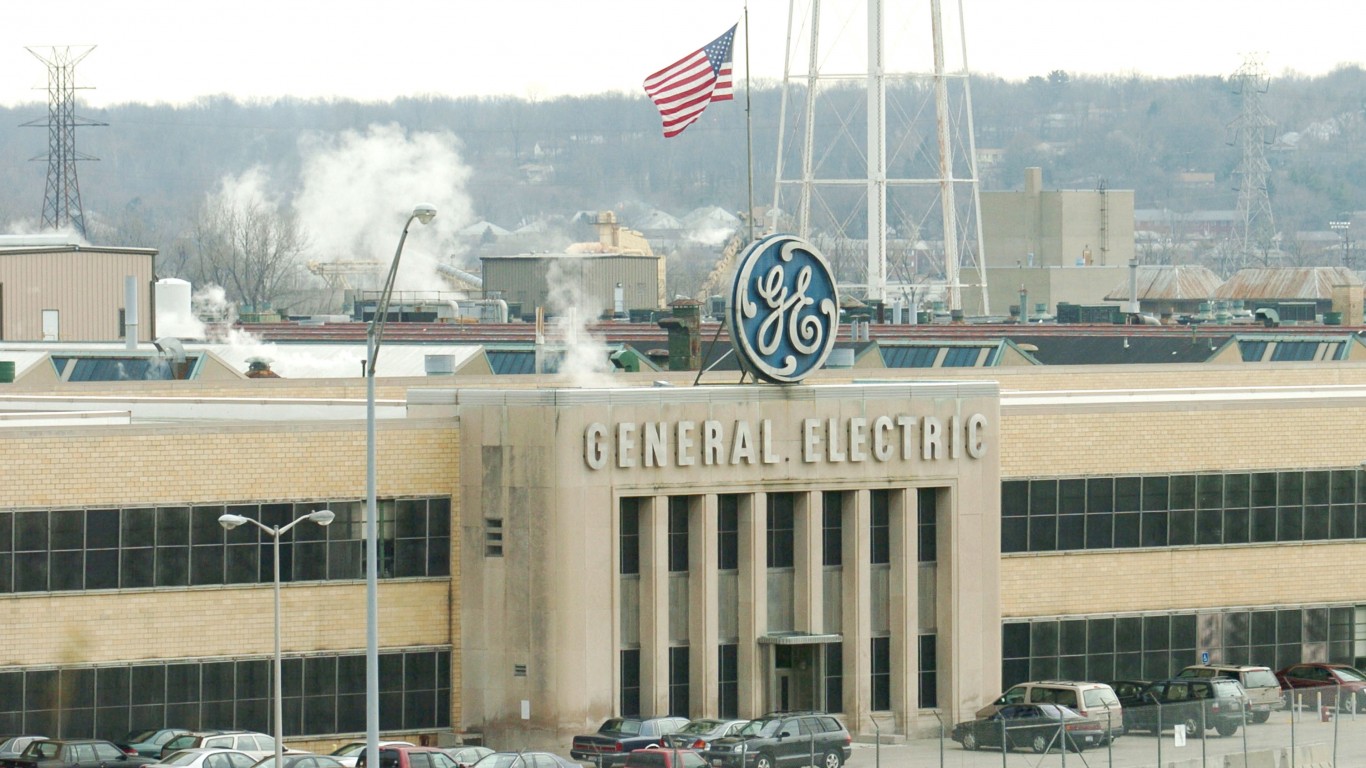
5. General Electric (NYSE: GE)
> Long-term debt: $95.2 billion
> Debt-to-equity ratio: 8.35
> Annual revenue: $121.6 billion
> Industry: Industrials
[in-text-ad]
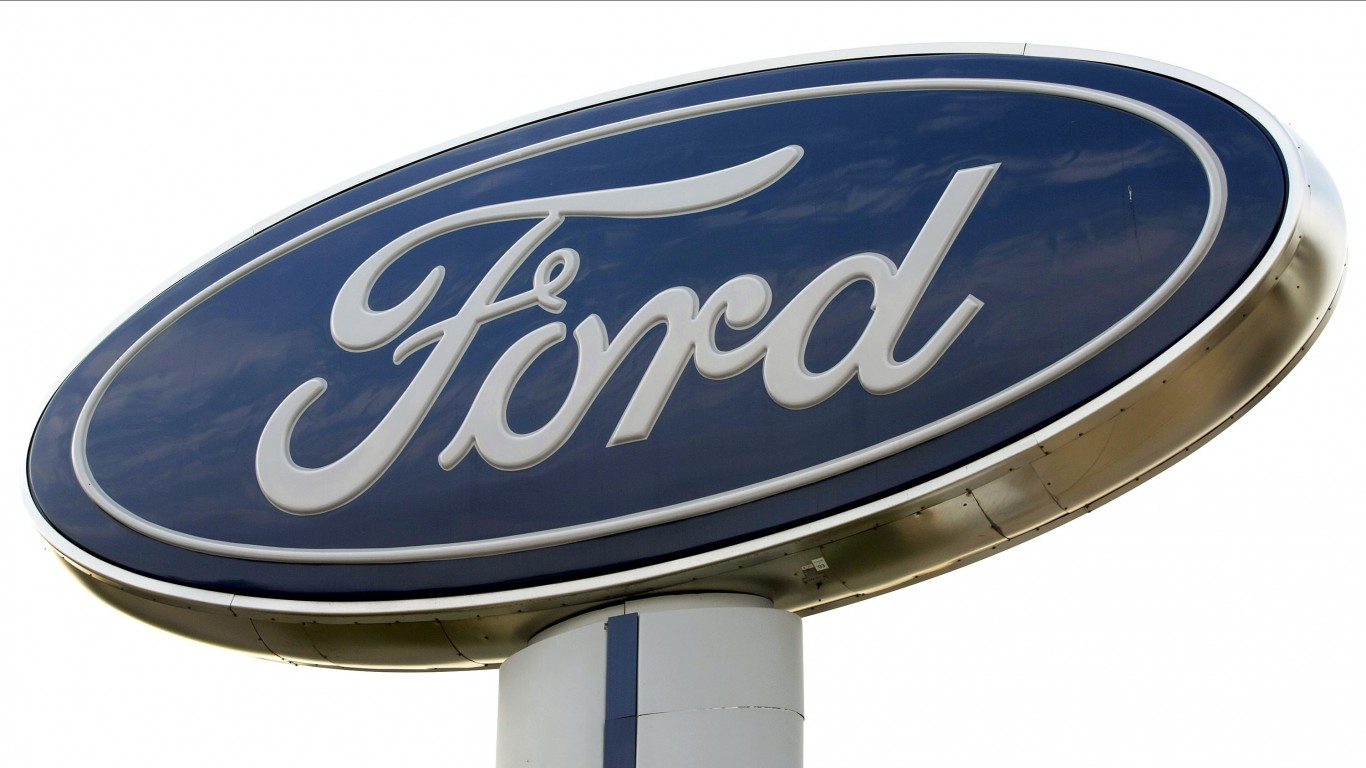
4. Ford Motor (NYSE: F)
> Long-term debt: $100.7 billion
> Debt-to-equity ratio: 2.80
> Annual revenue: $160.3 billion
> Industry: Motor vehicles & parts
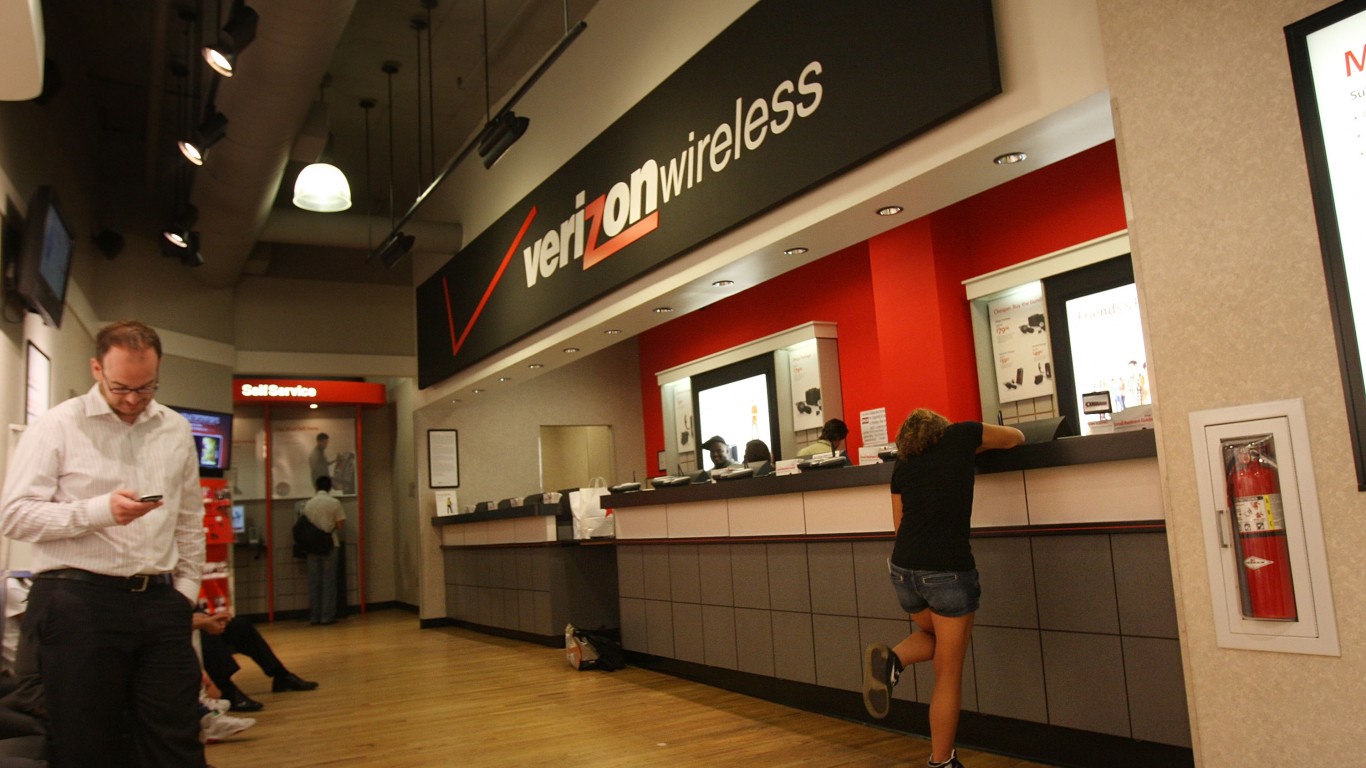
3. Verizon (NYSE: VZ)
> Long-term debt: $105.9 billion
> Debt-to-equity ratio: 1.94
> Annual revenue: $130.9 billion
> Industry: Telecommunications
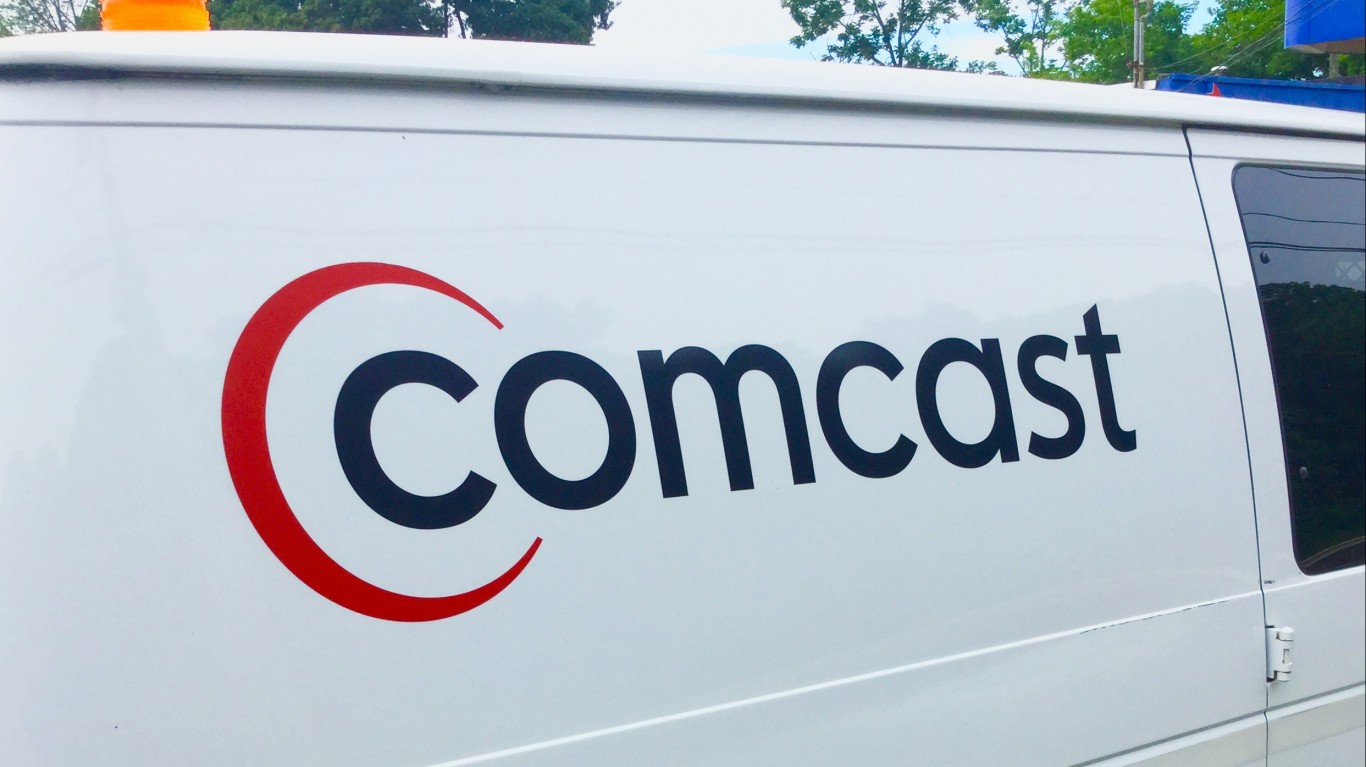
2. Comcast (NASDAQ: CMCSA)
> Long-term debt: $107.3 billion
> Debt-to-equity ratio: 2.29
> Annual revenue: $94.5 billion
> Industry: Telecommunications
[in-text-ad-2]
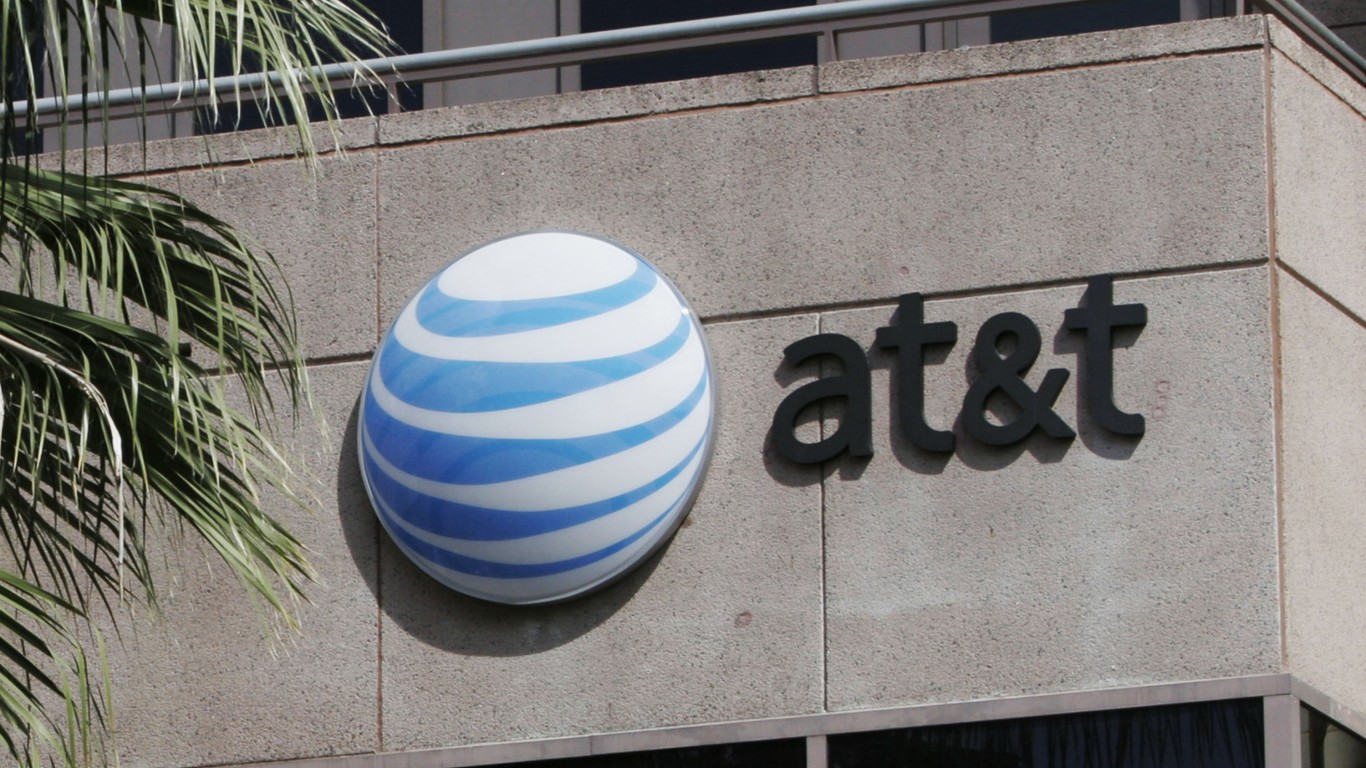
1. AT&T (NYSE: T)
> Long-term debt: $166.3 billion
> Debt-to-equity ratio: 0.86
> Annual revenue: $170.8 billion
> Industry: Telecommunications
Detailed Findings
Borrowing habits vary by sector. Capital-intensive industries like energy and utilities often need to borrow to fuel growth. Technology companies like Apple, on the other hand, may need to borrow in order to pay dividends to shareholders even as the bulk of their cash sits in tax havens overseas.
Of the 40 companies with the biggest corporate debt loads, seven are in the technology sector, four in utilities, four in energy, and four in telecommunications. Many of the tech companies on this list are also among the world’s 50 most innovative companies, and many of the industries represented by the most debt-laden companies also operate within America’s 25 thriving industries.
Borrowing activity can influence stock price. Four companies with the biggest debt loads were also among the nine companies that turned their fortunes around in 2018 — companies that had some of the biggest upswings in stock price over the past year. One factor relevant to investors looking at debt-laden companies is the debt-to-equity ratio — the ratio of long-term debt to shareholder equity that measures a company’s ability to cover outstanding debts. Companies with the highest debt-to-equity ratios on this list include General Electric, UPS, and Ford Motor.
Methodology
To determine the companies with the biggest corporate debt, 24/7 Wall St. analyzed the long-term debt of non-financial companies in the Fortune 500 with data from SEC 10-K filings. The debt-to-equity ratio and annual revenue for each company also came from SEC filings. All data is for the most recent fiscal year.
It’s Your Money, Your Future—Own It (sponsor)
Retirement can be daunting, but it doesn’t need to be.
Imagine having an expert in your corner to help you with your financial goals. Someone to help you determine if you’re ahead, behind, or right on track. With SmartAsset, that’s not just a dream—it’s reality. This free tool connects you with pre-screened financial advisors who work in your best interests. It’s quick, it’s easy, so take the leap today and start planning smarter!
Don’t waste another minute; get started right here and help your retirement dreams become a retirement reality.
Thank you for reading! Have some feedback for us?
Contact the 24/7 Wall St. editorial team.
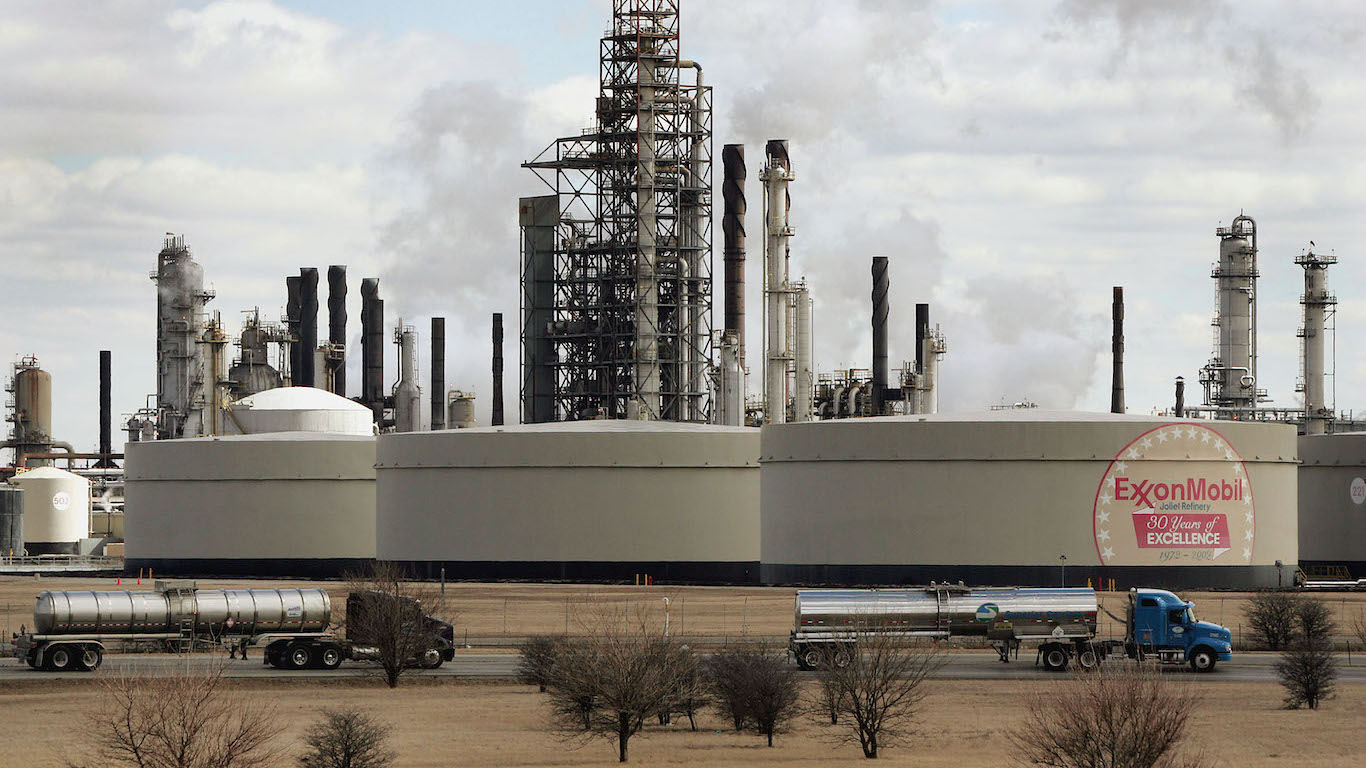 24/7 Wall St.
24/7 Wall St. 24/7 Wall St.
24/7 Wall St.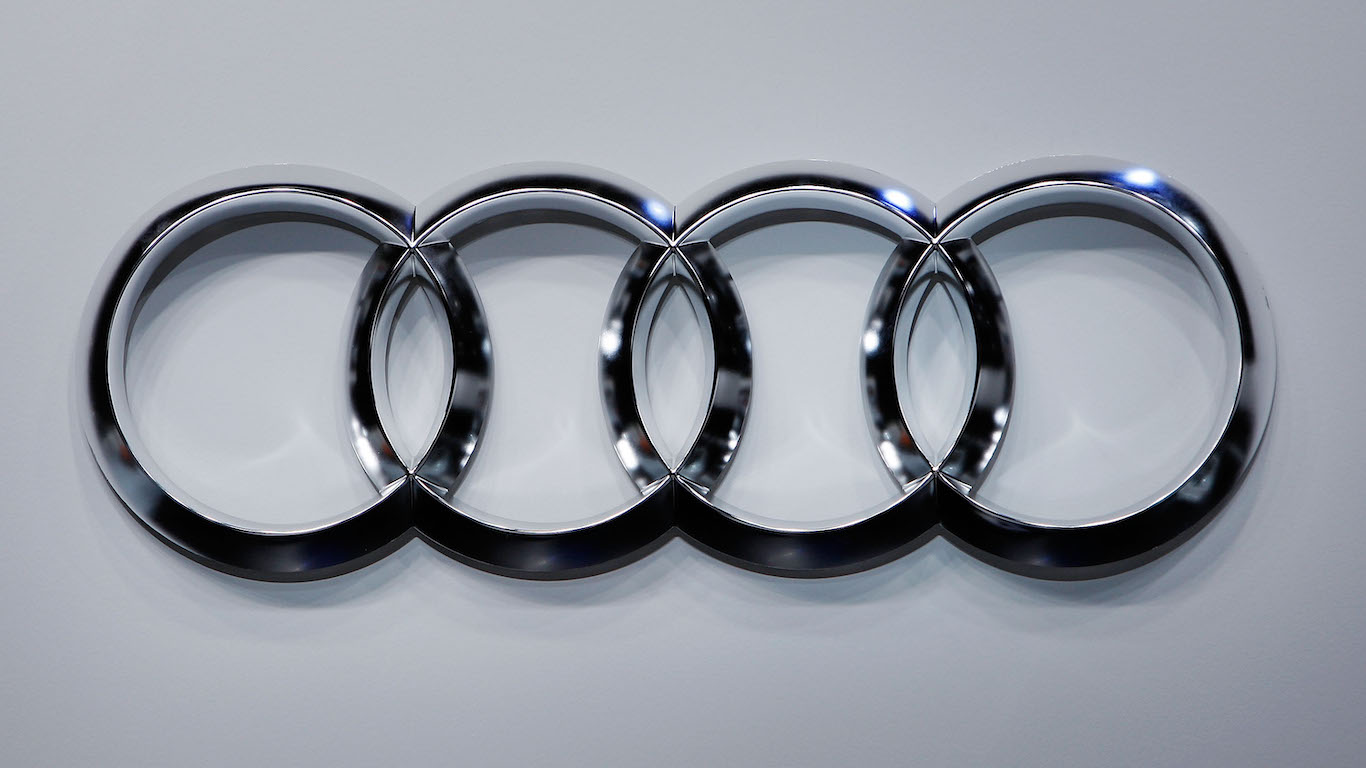 24/7 Wall St.
24/7 Wall St. 24/7 Wall St.
24/7 Wall St.



